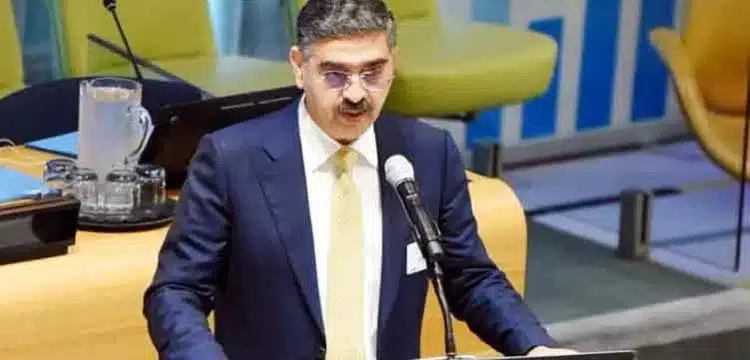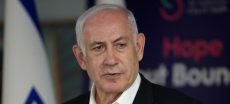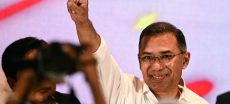[vc_row][vc_column][vc_column_text dp_text_size=”size-4″]Caretaker Prime Minister Anwaar-ul-Haq Kakar has expressed Pakistan’s dissatisfaction with Western nations for not acknowledging the “truth” regarding the right-wing leadership in New Delhi.
The prime minister’s comments come after Canada revealed India’s involvement in the murder of one of its citizens, leading to the expulsion of an Indian intelligence agency representative, and New Delhi’s subsequent response.
PM Kakar has connected this incident to Prime Minister Narendra Modi’s Hindu nationalist ideology, commonly referred to as Hindutva.
Earlier this week, Canadian Prime Minister Justin Trudeau asserted that Indian agents played a role in the killing of Hardeep Singh Nijjar, a Sikh separatist, near Vancouver in June.
Tune in live as I speak to the U.S. academic community on the @CFR_org YouTube channel. Here's the link to join us: https://t.co/0AooDfiGGm.
— Anwaar ul Haq Kakar (@anwaar_kakar) September 21, 2023
Trudeau stated that there are “credible allegations of a potential link” between the murder of Khalistani leader Hardeep Singh Nijjar in June and Indian government agents.
Also Read: Canadian PM Expelled Indian Diplomat Over Link with Sikh Leader’s Murder
However, India has rejected this assertion, labeling it as “absurd and politically motivated,” according to the Hindustan Times.
“These proponents of Hindutva are growing increasingly bold and extending their influence beyond the region,” Kakar remarked at the Council on Foreign Relations in New York during his participation in the UN General Assembly.
“The regrettable killing of Mr. Singh on Canadian soil is indicative of this concerning trend,” he added.
“However, for obvious economic and strategic reasons, many influential figures in Western capitals have chosen to overlook this fact and reality,” he noted.
He emphasized that the escalating wave of Hindutva-driven anti-Muslim extremism in India should concern the entire international community, including the United States.
Also Read: India Expels Canadian Diplomat In Retaliation
Western powers, led by the United States, have been cultivating a relationship with India for years, seeing it as a natural ally, particularly amid growing concerns about China.
Modi recently showcased India’s global role as he hosted the Group of 20 summit in New Delhi.
He has promoted the identity of the Hindu majority in India, but rights groups have accused him of fostering a hostile environment for religious minorities, including Muslims, Christians, and Sikhs.
Nijjar, who was wanted by India for alleged terrorism and conspiracy to commit murder, advocated for the creation of a separate Sikh state known as Khalistan.
India has long alleged that Pakistan has supported the Khalistan movement, which led an insurgency in the 1980s that was eventually quashed by Indian security forces.
Additionally, the prime minister urged the U.S. administration to encourage the Indian government to resolve the Kashmir dispute amicably, in line with the wishes of the people of Jammu and Kashmir, to bring lasting stability to South Asia.
He reiterated Pakistan’s desire for peaceful relations with India but stressed the need for reciprocal sincerity from the Indian government.
“The actions taken by India in 2019 in the Indian Illegally Occupied Jammu and Kashmir have pushed our region into a perilous and uncertain path,” the prime minister stated during his address at the CFR.
[/vc_column_text][/vc_column][/vc_row]











